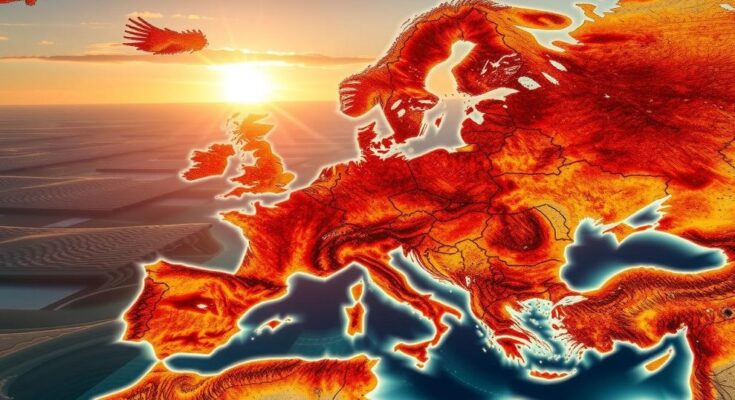For the second consecutive year, Earth is expected to become the hottest on record, with temperatures exceeding the 1.5 C threshold, according to the European climate agency Copernicus. The report emphasizes the critical influence of greenhouse gases on the persistent rise in temperatures while elaborating on the impending repercussions of climate change ahead of COP29 talks.
The European climate agency Copernicus has announced that, for the second consecutive year, the Earth is anticipated to record its hottest year on record. With global temperatures surpassing the 1.5 degrees Celsius threshold compared to pre-industrial levels, this alarming trend illustrates the relentless nature of climate change, prominently driven by greenhouse gas emissions. While factors such as El Niño, volcanic activity, and solar variations contribute to temporary temperature spikes, scientists caution that the overarching warming trend is indicative of severe long-term consequences for the planet.
The announcement arrives shortly after the U.S. elections, where a candidate who previously dismissed climate change as a ‘hoax’ has secured reelection. As the global community prepares for the upcoming COP29 summit in Azerbaijan, discussions are expected to focus on securing financing for transitioning to clean energy solutions. Furthermore, a United Nations report highlights the necessity for substantial financial resources to address the consequences of climate change, which remains critically underfunded despite a record expenditure in adaptation efforts in 2022.
Experts indicate that exceeding the 1.5-degree threshold for a single year diverges from the long-term target established in the Paris Agreement, which seeks to limit average global warming. The current trajectory suggests a concerning increase in global temperatures, and without significant improvements in emission reduction strategies, the potential for rampant climate-related disasters looms. Overall, this stark report emphasizes the importance of global cooperation and empirical data in formulating effective climate policies.
Michael Mann, a climate scientist at the University of Pennsylvania, stated, “In the absence of concerted action, it soon will” refer to the likelihood of surpassing critical warming thresholds. Likewise, Rob Jackson, a Stanford University climate scientist, commented, “I think we have missed the 1.5 degree window; there’s too much warming”. These insights compel nations and societies to base their decisions on scientific evidence to mitigate impending climatic challenges effectively.
This article addresses the significant findings released by the European climate agency Copernicus, which projects that Earth will experience its hottest year ever recorded for the second year in a row. This situation arises amid mounting concerns related to climate change and its destructive impacts on global weather patterns. The announcement comes at a critical time, just before a pivotal U.N. climate summit. It underscores the necessity for robust international cooperation and comprehensive financial investment in climate adaptation and mitigation strategies to combat escalating temperatures.
In summary, the latest report from Copernicus serves as a stark warning about the ongoing climate crisis, highlighting an unprecedented rise in global temperatures linked to human activities. The urgency of implementing effective climate adaptation and mitigation strategies is pronounced, requiring global commitment and action. With the potential looming consequences of climate change, stakeholders are urged to prioritize empirical data in shaping future policies and to mobilize resources toward a transition to sustainable energy.
Original Source: apnews.com




